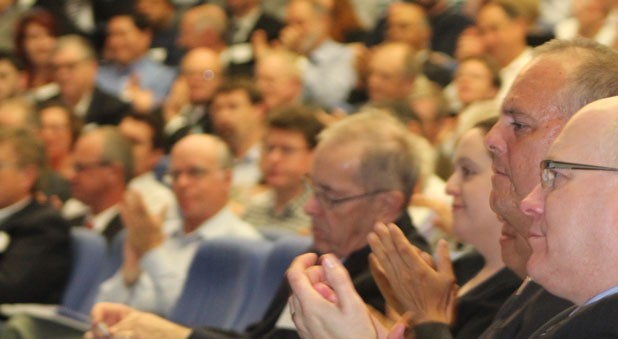The first week of Synod has seen a raft of decisions, including encouraging new Anglican Communion structures, changes to governance and boards and clergy licensing.
GAFCON and ACNA encouraged
Synod passed a motion recognising GAFCON (The Global Anglican Future Conference) as an ‘emerging instrument of communion’.
Moved by the Rev Gavin Poole, the motion gave thanks for the success of GAFCON 2013 in Nairobi which was attended by 1358 delegates from 39 countries including 99 delegates from Australia.
Synod encouraged GAFCON and the Fellowship of Confessing Anglicans to expand its membership, develop networks, and to authorise and affirm those who have been excluded by their dioceses or provinces.
The motion also congratulated the Most Reverend Foley Beach on his investiture as Archbishop and Primate of the Anglican Church in North America (ACNA).
A branch of the Fellowship of Confessing Anglicans is being developed in Australia and
will hold its inaugural conference in Melbourne next year.
Governance changes
Alumni representatives on diocesan school councils will be required to sign a statement of personal faith from July 1, 2020, after Synod passed a motion to this effect on the second day of sittings.
Following a contentious debate on the issue in 2013 as part of consideration of a draft governance policy for diocesan organisations – which passed by a mere six votes – the mover of the motion, Dr Laurie Scandrett, brought this element of the policy back to the Synod for separate debate. The full governance policy will be reconsidered next week.
The new draft includes the provision of a six-year transition period so that the seven schools which do have alumni representatives on their councils have time to find appropriate replacements.
Clergy checks
Clergy who have not done the NSW Government’s Working With Children Check (WWCC) can now be delicensed by the Archbishop, following a successful Synod motion.
The diocesan registrar, Mr Doug Marr, said all clergy currently licensed in the Diocese had applied for a WWCC before the deadline in March this year – and any new clergy would be required to obtain a WWCC number before being licensed in future.
However, Mr Marr said the number is only valid for five years, and given that clergy are effectively employees of the Archbishop of Sydney, it was important he had the power to suspend a license to ensure he remained in compliance with government WWCC requirements.
Mr Marr also reminded Synod members that all existing church volunteers working with children were required to have applied for a WWCC by the end of March 2015.


























